Ever since we have started working hard on the ECOBANK project, and even long before that, people have asked me 'How safe is it to travel to Colombia?'. Its not a bad question, but it begs a few more questions as well, like, what do you plan to do in Colombia, where do you plan to go and how stupid do you plan to look while doing it?
This may sound harsh to some, but it is just reality, so let me go into some back story so you get the full picture. Remember, I believe that Colombia could be used as a 'backup residence' by investors in our ECOBANK project, so ultimately I hope I will convince you that Colombia is safe. But that doesn't mean you will be safe unless you think about what you are doing.
Through until about the middle 90s, and in a somewhat reduced fashion into the early 00s, Colombia had some violence problems. Still today there are armed groups that dispute the authority of the government, and in many cases it is easy to see why they do so.
That being the case, Colombia has entered into a period of 'Paz', a mostly political phenomenon that is still reverberating throughout the other spheres of life in the country. There are still red zones, areas you are not recommended to go, especially as a tourist. I would recommend you do your research before hand, especially talking to local people helps enormously.
There are also heavily touristed areas. From the cruise stops in the Carribean to the Eje Cafetero, there are a few heavily traveled tourist attractions around, and dozens of lesser known routes. There is also a growing rural market for national tourism, serving mostly Colombians from city living on their government mandated vacation times.
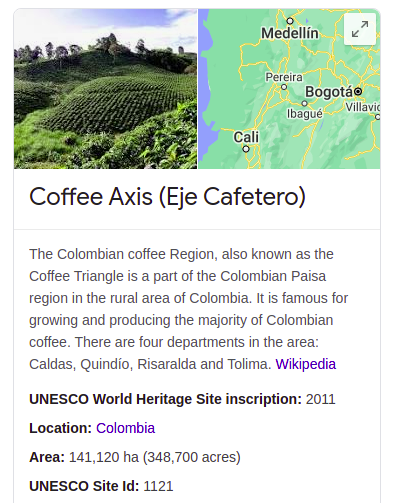
In all parts of Colombia, but especially in urban areas, there still exists 'petty crime'. I think this is probably true in all parts of the world, or at least in the 'developing world', and people who are not used to petty crime or urban environments should probably brush up.
Papaya Doctrine
There is somewhat of an informal law in Colombia. If you put a papaya on the table, expect it to be shared. This is the essence of the 'Payapa puesta, papaya partida' doctrine. This doctrine is also involved when you are flashing a lot of money or carrying around a lot of expensive equipment. Certainly most Colombians do not promote or engage in petty crime, but almost all will agree that if you 'dar papaya', that is 'show your papaya fruit', inevitably someone will try to 'partirla', share it or take it.
This is also commonly associated with something like leaving bags or valuable items unattended. If you leave an item unattended, and it disappears, many Colombian's will respond with the advice 'never give/show papaya'. This is deeply engrained in the Colombian culture.
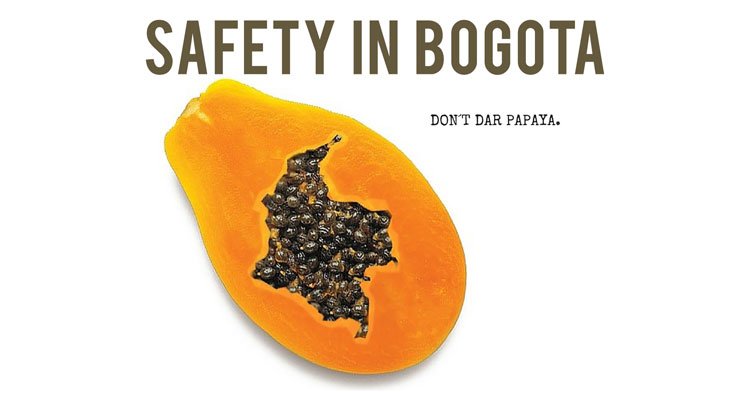
Use a debit/credit card.
You can withdraw cash from an ATM, I use Davivienda because it has no fee, and I have found that my Paypal Business Debit card works great (spectacular conversion rate +1% international fee), but in a pinch I can get cash off my credit card (no fee but +1.5-2% skew on conversion rate. )
This eliminates the need for carrying around large amounts of cash. This could also require planning ahead, the next big piece of advice.
Plan ahead, get in touch, communicate your plans.
This is probably obvious, but get in touch ahead of time with a trusted vacation planner or local person. We hope to add some of these services to the ECOBANK project, perhaps even making some specific guides on certain aspects like the airport, or travelling between towns.
You obviously can come on a whim without any plans, but in that case, it really helps to speak Spanish.
Speak Spanish, or at least key phrases.
If you don't already speak spanish, the chances that you will learn a whole language are minimal (at least they are until you start learning). But you should accustom yourself to a few key phrases such as:
Buenos Dias - Good Morning
Gracias - Thank you
Todo Bien - All good
And remember your body language! Smiling helps a lot, and also thumbs up is a commonly used indicator along with 'Todo Bien'. This can be the answer to almost any question.
Colombian people are generally very friendly, and pretty much like tourists as long as they are not overtly offensive. They will want to talk to you even if you don't speak spanish, and you are generally expected to try at least a little. There is a lot of body language and making of sounds involved in this process, but it can be quite fun.
Some people speak english! Some of them only speak a little english, but they will often use every word they know with you. Its considered good form to expend some effort to try to understand them.
It's perhaps not as daunting as it might seem if you know that most of the conversations are quite similar in form. These are some of the questions that local people will want to know from you:
How do you like (this place)?
What do you think of Colombia?
What is different here from where you are from?
Do you like our food?
What do you like about Colombia/(this place)?
How about the weather?
Its really not that complicated. This is the basic level of relation to have with people you are visiting, understanding that you are experiencing something different, and working to articulate those differences while you are doing so.
Different types of tourism
Everyone has a different idea of tourism. For the nationals, they seek resort/hotels with pools to take their families too, maybe even a small outdoor waterpark with nearby lodging. I am from Wisconsin so this smaller and more distributed 'Wisconsin Dells' type tourism is not unknown to me.
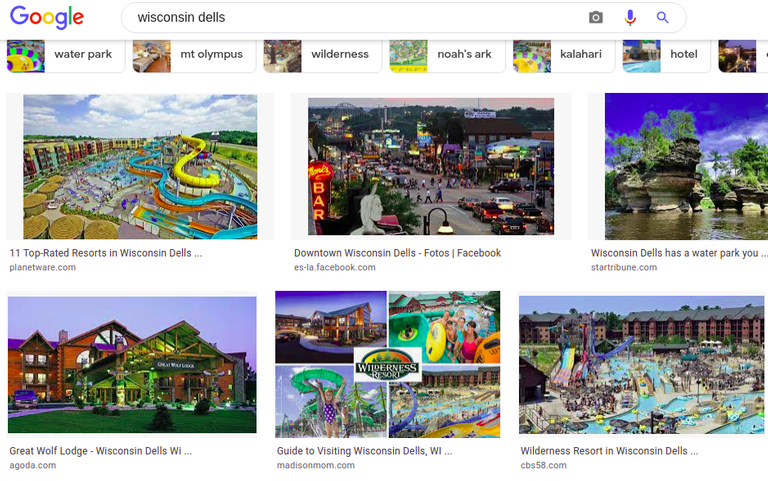
But it can often feel cookie cutter, and most people from other countries didn't come all this way to sit beside a pool full of water.
For me, the neat thing about Colombia is walking in these mountains, meeting these people and seeing how they live their lives.
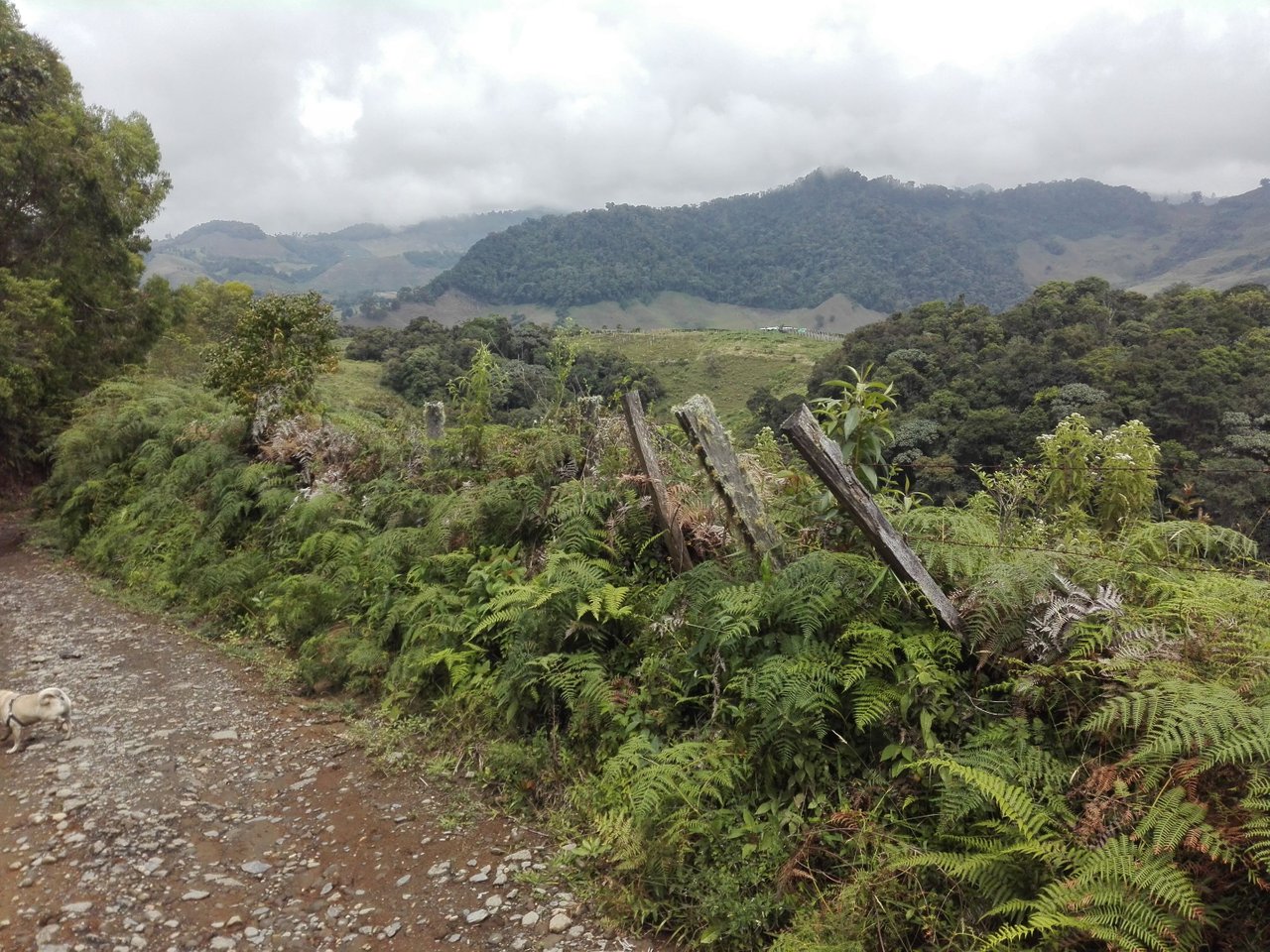
Source Post: Expedition Gregorita 2: The Back 9
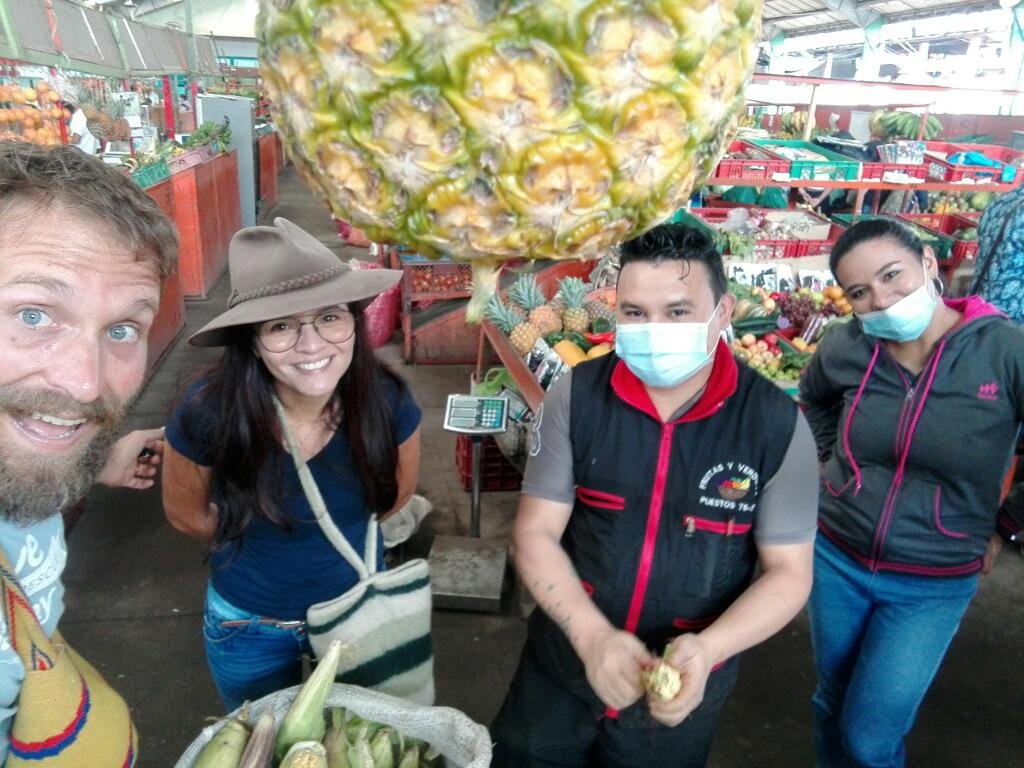
Source Post - Fun along the Way with Turmeque
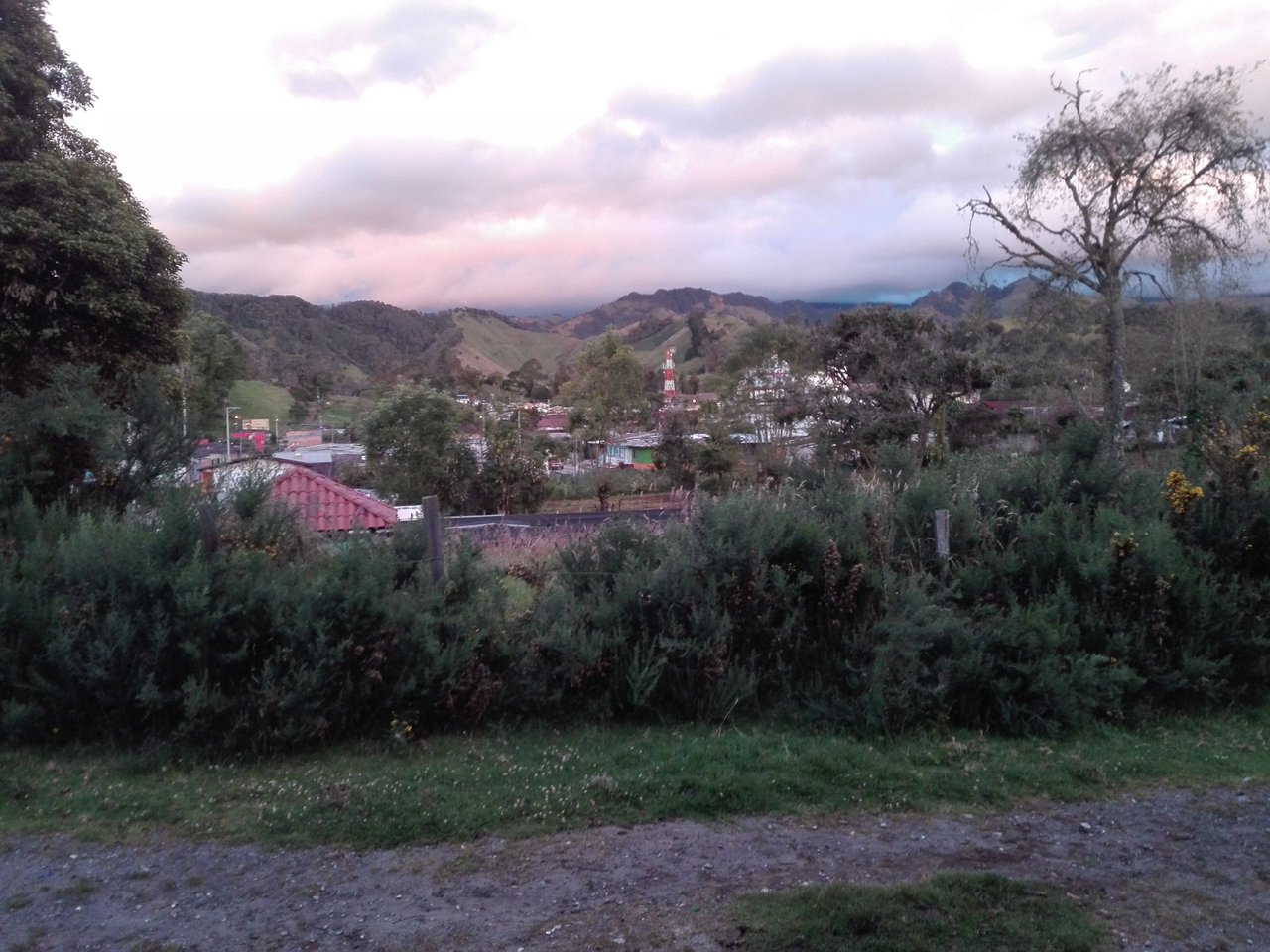
Source Post: Travel Within Tolima: Murillo
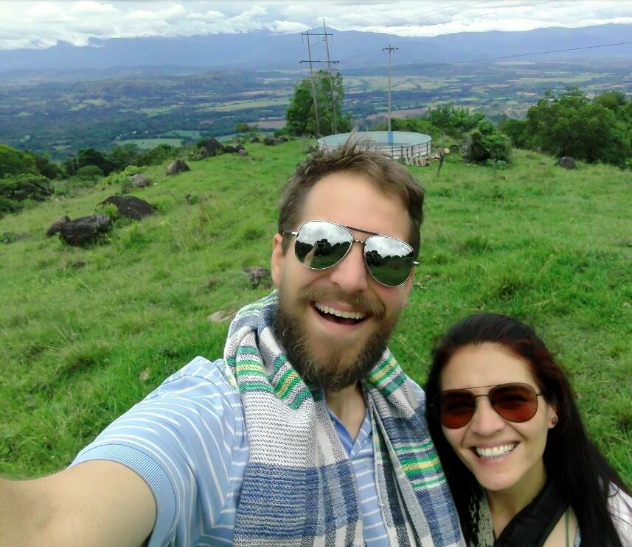
Source Post: What a great day for a view
Here and there around us are plenty of waterfalls, thermal pools, out of the way dining experiences, and incredible Andean views.
The ECOBANK project plans to incorporate a 'Punto de Informacion Touristico (PIT), and have a compendium of local offerings available for people staying with us, as well as the phone numbers of available guides and transportation. Translators are less common, but can be found. I myself have played this role before, although it can be quite taxing and time consuming to do it for 24 hours a day or even 7 days a week.
And we already have a group asking for availability in March 2022!
Please feel free to provide some feedbank on this type of #ecobanker content, I think that I should probably produce a series of these types of articles over the next year.
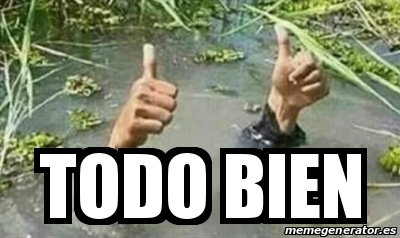
It's nice to know that everything should be fine if you make sure you do the preparation work. The papaya doctrine makes sense. It's not yours if you leave it around unguarded and someone else takes it.
Posted Using LeoFinance Beta
I heard there is a dangerous bearded man in the woods of Colombia with a chainsaw.
Some legends are true. @ecosaint
I heard if you go to Colombia you can disappear in an ecoinstant.

Gracias for this travel post.
Colombia looks like a good place to visit.
I travel for different reasons compared with many people. Might be visiting Colombia sometime soon!
Posted Using LeoFinance Beta
So this is only tangentially connected to the topic but you reminded me of something I've been wondering for quite a bit. How active is the FARC these days? Last I'd come across news it seemed the government wasn't keeping its end of the bargain and some were starting to take up arms again.
Most of what I know of Columbia comes from studying groups like FARC, ELN, and AUC, this was a nice (and rather different) perspective on the country. Gonna have to remember the papaya doctrine!
They are not gone, but not as active as some other groups. Mostly this activity is relegated to certain regions. There seems to be a lot of paramilitary activity still, again in some remote regions.
Gotcha, good to know. Thanks!
Great insights, is there a peoples militia in your region?
not really in the region but in some marginal areas some groups do exist. Here are some of the best maps
Ah ok, but those are actual Gangs, I mean a defensive civil militia like in the USA.
There is a Civil Defense group which is more like an independent national guard, they usually help out in disasters and such. Also many land owners have some guns around just in case.
Sounds Texas :D
This is a very nice place to go. It is one of my wishes to travel around the world. Colombia is one those places I will like to go.
Posted Using LeoFinance Beta
Este post esta muy bueno. "no dar papaya" es la consigna, los extranjeros residentes o no viven muy bien en Colombia; De lo contrario pregúntele a Trapp, que llego y se quedo aquí viviendo en las montañas del Norte del Tolima...🤣
View or trade
BEER.BEERHey @ecoinstant, here is a little bit of from @pixresteemer for you. Enjoy it!Do you want to win SOME BEER together with your friends and draw the
BEERKING.The Pic was from today?
All these are older pics - today we are pouring a cement floor!